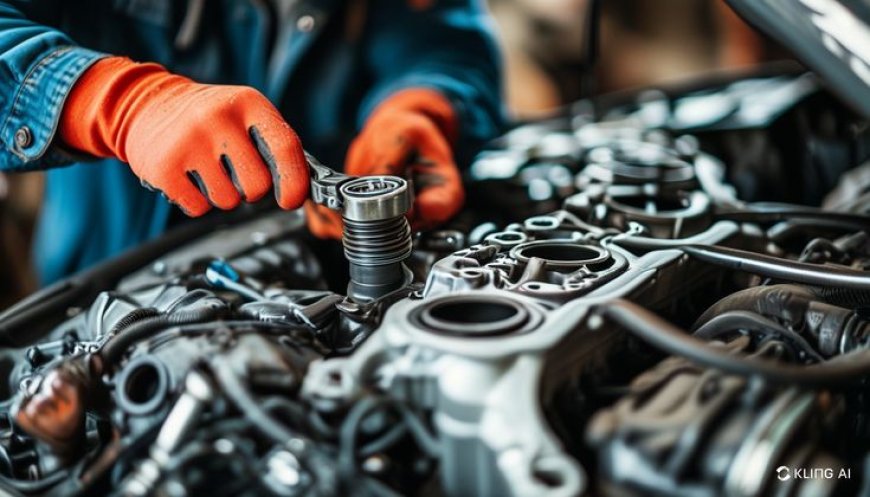The Coyote Engine: Ford’s Modern V8 Powerhouse Redefining Performance
The Coyote engine is a 5.0-liter V8 developed by Ford as part of its Modular engine family. It made its debut in the 2011 Ford Mustang GT and has since powered multiple generations of Mustangs and F-150 trucks.

The automotive world has seen numerous engine platforms rise and fall over the years, but few have had the lasting impact and continued innovation of Ford’s Coyote engine. Known for its blend of raw performance, modern efficiency, and versatile applications, the Coyote has become a favorite among enthusiasts, racers, and restomod builders alike.
What Is the Coyote Engine?
The Coyote engine is a 5.0-liter V8 developed by Ford as part of its Modular engine family. It made its debut in the 2011 Ford Mustang GT and has since powered multiple generations of Mustangs and F-150 trucks. Designed to offer both performance and reliability, the Coyote replaced the aging 4.6L and 5.4L modular engines with a more advanced and high-revving alternative.
Core Features of the Coyote Engine
-
Displacement: 5.0L (302 cubic inches)
-
Architecture: Aluminum block and heads
-
DOHC: Dual Overhead Camshafts
-
Ti-VCT: Twin Independent Variable Cam Timing
-
Fuel Delivery: Port injection (Gen 1 & 2), Direct and Port injection (Gen 3+)
-
Horsepower: 412 HP (Gen 1) up to 480+ HP (Gen 3 Mustang GT)
-
Redline: Up to 7,500 RPM
The Coyote is praised for its high-revving nature, broad torque curve, and its ability to deliver strong performance while remaining streetable and efficient.
Generational Improvements
Ford has made several key upgrades to the Coyote engine since its introduction:
-
Gen 1 (2011–2014): Introduced with 412 HP and 390 lb-ft of torque. A solid base, but lacked the refinements of later models.
-
Gen 2 (2015–2017): Improved cylinder heads, larger intake/exhaust valves, and revised camshaft profiles. Power increased to 435 HP.
-
Gen 3 (2018–2023): Added direct injection alongside port injection, increased compression ratio, and stronger bottom end—delivering up to 480 HP.
Each generation brought better airflow, combustion efficiency, and tuning potential, keeping the Coyote engine at the forefront of modern V8 performance.
Why Enthusiasts Love the Coyote Engine
-
Tuning and Aftermarket Support
The Coyote has one of the strongest aftermarket ecosystems. From superchargers and turbo kits to camshaft upgrades and custom tunes, the engine responds extremely well to modifications. -
High-Revving Performance
Unlike many traditional pushrod V8s, the Coyote’s DOHC design allows it to spin high and make horsepower at the top of the RPM range, giving it a unique driving experience. -
Reliability
Despite its performance capabilities, the Coyote engine is known for its durability when maintained properly. It's not uncommon for well-cared-for Coyotes to exceed 150,000 miles. -
Swap Potential
The Coyote is a popular swap choice for classic Mustangs, hot rods, and even vehicles from other manufacturers. Companies now offer swap kits, harnesses, and mounts to make the process more seamless than ever.
Applications of the Coyote Engine
While it was born in the Mustang, the Coyote engine also found a home in:
-
Ford F-150s – Detuned versions focus more on torque delivery for truck use.
-
Ford Performance Crate Engines – Available as standalone units for custom builds.
-
Restomods and Project Cars – Commonly swapped into classic vehicles for modern performance with a retro feel.
Common Coyote Engine Modifications
-
Cold air intakes and performance exhausts
-
ECU tuning with handheld tuners or custom dyno tunes
-
Supercharger kits (Roush, Whipple, etc.)
-
Long tube headers for better airflow
-
Built internals for high-horsepower applications
With the right setup, the Coyote engine can produce over 700 horsepower with forced induction—without sacrificing drivability.
Conclusion: The Legacy of the Coyote Engine
The Coyote engine is more than just Ford’s 5.0L V8—it’s a symbol of modern American performance. It balances old-school muscle with new-age efficiency and technology. Whether you're a weekend warrior looking for more power, a builder creating your dream swap, or simply a Mustang enthusiast, the Coyote stands out as one of the best V8s in the game.
As Ford continues to evolve the Coyote platform, its popularity shows no signs of slowing down. And for those looking for a balance between power, reliability, and versatility, there’s simply no replacement for the Coyote.
What's Your Reaction?
 Like
0
Like
0
 Dislike
0
Dislike
0
 Love
0
Love
0
 Funny
0
Funny
0
 Angry
0
Angry
0
 Sad
0
Sad
0
 Wow
0
Wow
0








































